I’ve read a lot of advice on writing, much of it long, drawn out, and not very helpful. Here’s some I like:
Artist’s problem: To get to the best in oneself. And then get away from it.
My thoughts on whatever
I’ve read a lot of advice on writing, much of it long, drawn out, and not very helpful. Here’s some I like:
Artist’s problem: To get to the best in oneself. And then get away from it.
 Andrew, who plumbed my house, quit the MFA program at Stanford to work in his uncle’s plumbing business. “The best writer in our group, one year ahead of me, struggled to find a job. If it was so hard for her, what hope was there for me?” He explained, while fixing my dishwasher. While he curls under my sink, we chat about who we are reading, who we should read next. When he went to Yosemite, he texted me photos of the rainbow over the falls; he had hiked six miles to get the right angle.
Andrew, who plumbed my house, quit the MFA program at Stanford to work in his uncle’s plumbing business. “The best writer in our group, one year ahead of me, struggled to find a job. If it was so hard for her, what hope was there for me?” He explained, while fixing my dishwasher. While he curls under my sink, we chat about who we are reading, who we should read next. When he went to Yosemite, he texted me photos of the rainbow over the falls; he had hiked six miles to get the right angle.
Martin installed the new cat doors and fixed the curtain rod that was pulling out of the sheetrock. He is from Mexico City, and keeps his horse in El Sobrante. His favorite author is Gabriel Garcia Marquez.
Frank, who built the redwood fence that keeps out the deer, recited Frost to me as he worked once he knew I wrote poetry. And yesterday, while Rob was replacing the ballast in the fluorescent in my husband’s workroom, we talked about Joan Didion’s essays versus her fiction. Continue reading “Home Repair in Berkeley”
 I read this about New Year’s resolutions in the Paris Review this morning:
I read this about New Year’s resolutions in the Paris Review this morning:
“One estimate suggests that almost half of Americans make New Year’s resolutions, and yet fewer than 10 percent successfully follow through… It might be tempting to do away with this farce altogether, but before we commit to being noncommittal about the New Year, it’s worth thinking through some of the options.”
So here’s an option. My approach to this tradition is “aim low and succeed.” Some examples from past years:
No movie theater popcorn
Only good chocolate
Learn to make better salad dressings
I’m happy to report that I was able to sustain each of these resolutions, and they improved my life by a small increment. This year?
Get more massage
I have great hopes for this. Oh, you looking for something a little more uplifting? How about this:
I have been feeling sad about my new book of poems coming out not, watching planned events cancelled one by one, but this passage by Joseph Brodsky really helped put things in perspective for me–my book may be exiled for the moment, but there are much worse fates:
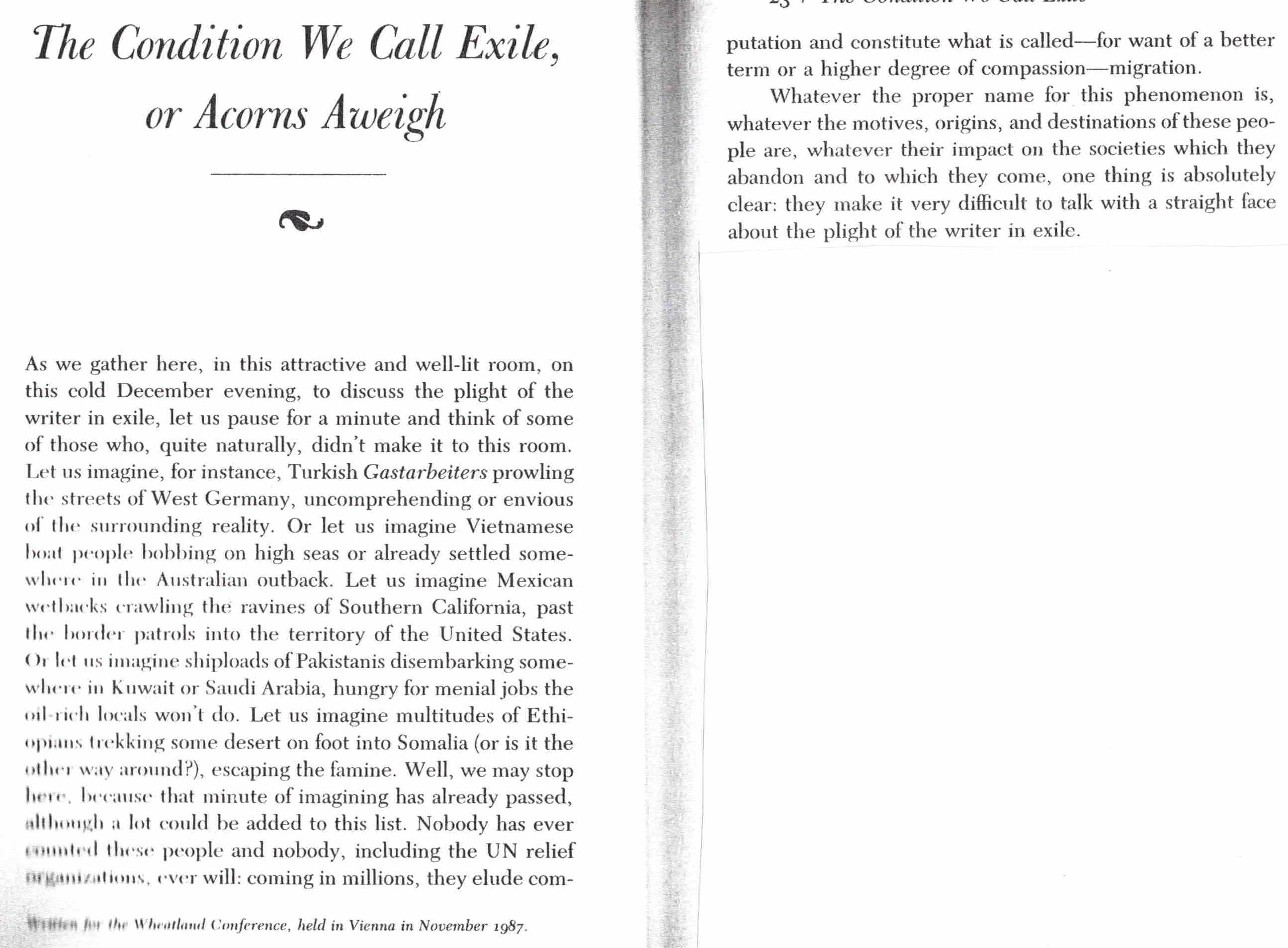
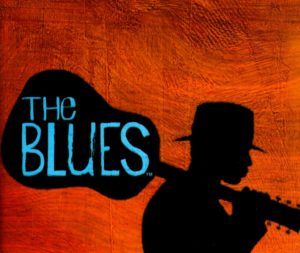 I know everyone is posting moving, relevant poems right now. But I thought a little levity would be more useful. Here are some favorites from a list of “Rules of the Blues:”
I know everyone is posting moving, relevant poems right now. But I thought a little levity would be more useful. Here are some favorites from a list of “Rules of the Blues:”
There are more, but you get the idea. If you have to stay in your house or apartment to flatten the virus curve, it’s not the Blues.
 Last night I went to the San Francisco JCC to hear Danez Smith, a powerful youngish black poet, read from his new book, “Homie.” Sam Sax and Safia Elhillo read with him. The crowd was mostly young and very enthusiastic. Danez is a poet who comes from the loud and proud tradition, often found at poetry slams, less often in books. I enjoyed his reading, and the light, noisy atmosphere, so different from a standard poetry event. But after the reading, in the inevitable Q&A, a woman asked in relation to the publishing industry, still mostly owned and staffed by white people, “How do we dismantle the publishing industry so more diverse voices can be heard?” Neither Safia or Sam had much to say to that. To his credit, Danez said, “Well I don’t know that we want to dismantle it, just support the publication of diverse voices.” There was more to his response than that, but the question reminded me of a passage in James Baldwin’s amazing essay, “Down at the Cross: Letter from a Region of My Mind.” In it, he is being driven to meet friends after a dinner with Elisha Muhammad. His driver (a follower of Muhammad), is talking about the wonderful day when the Negro (his word) population has its own, separate economy. Baldwin asks him, “On what, then, will the economy of this separate nation be based?” and goes on:
Last night I went to the San Francisco JCC to hear Danez Smith, a powerful youngish black poet, read from his new book, “Homie.” Sam Sax and Safia Elhillo read with him. The crowd was mostly young and very enthusiastic. Danez is a poet who comes from the loud and proud tradition, often found at poetry slams, less often in books. I enjoyed his reading, and the light, noisy atmosphere, so different from a standard poetry event. But after the reading, in the inevitable Q&A, a woman asked in relation to the publishing industry, still mostly owned and staffed by white people, “How do we dismantle the publishing industry so more diverse voices can be heard?” Neither Safia or Sam had much to say to that. To his credit, Danez said, “Well I don’t know that we want to dismantle it, just support the publication of diverse voices.” There was more to his response than that, but the question reminded me of a passage in James Baldwin’s amazing essay, “Down at the Cross: Letter from a Region of My Mind.” In it, he is being driven to meet friends after a dinner with Elisha Muhammad. His driver (a follower of Muhammad), is talking about the wonderful day when the Negro (his word) population has its own, separate economy. Baldwin asks him, “On what, then, will the economy of this separate nation be based?” and goes on:
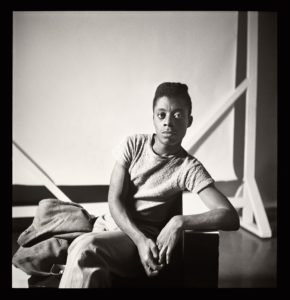 “I was thinking, in order for this to happen, your entire frame of reference will have to change, and you will be forced to surrender many things that you scarcely know you have. I didn’t feel that the things I had in mind, such as the pseudo-elegant heap of tin in which we were riding, had any very great value. But life would be very different without them, and I wondered if he had thought of this. Continue reading “A raucous poetry reading”
“I was thinking, in order for this to happen, your entire frame of reference will have to change, and you will be forced to surrender many things that you scarcely know you have. I didn’t feel that the things I had in mind, such as the pseudo-elegant heap of tin in which we were riding, had any very great value. But life would be very different without them, and I wondered if he had thought of this. Continue reading “A raucous poetry reading”
Yesterday at the Berkeley post office I was waiting in line for stamps. A long line, moving slowly, two working clerks. A clerk was free, and the man in front of me didn’t move up, so I tapped him lightly on the shoulder–something that seemed a perfectly normal thing to do at the time–to alert him that the clerk was free. The man was an older black man and he immediately turned and grabbed me and pushed me hard, yelling “Don’t you put your white hands on me, ” etc. No apology could mollify him; he was clearly at some hair trigger point, and my tap had been the trigger. The supervisor came out and after some time calmed him down somewhat, and we all went on with our morning, slightly shaken.
I realize we are now in a world in which it is not safe to tap someone on the shoulder; the shared assumptions of civility have eroded to the point where we don’t know what will offend, I lesson I’m glad I learned with someone who wasn’t carrying a gun!
Once in awhile something really perfect appears on youtube. It’s not about the nail, created by Jason Headley is funny and so smart. Take a look.
 Almost every day, a new solicitation for a poetry contest pops into my inbox. I have read articles and heard rumors about their transparency or lack of transparency. But even if all entries are read blind, and the awards are based solely on what the appointed judges fell is the best work (or the best of the screened entries provided to them), I am writing this very short rant against the whole dynamic of the poetry contest.
Almost every day, a new solicitation for a poetry contest pops into my inbox. I have read articles and heard rumors about their transparency or lack of transparency. But even if all entries are read blind, and the awards are based solely on what the appointed judges fell is the best work (or the best of the screened entries provided to them), I am writing this very short rant against the whole dynamic of the poetry contest.
At this point there is almost a contest every day–some days multiple contests. Entry fees go from $15-40 per contest. In fact, the raison d’être of the contest is to fund the offering organization, a journal, a publisher, whatever. Some organizations run multiple contests a year, a continuous income stream. Each of these contests must have a winner regardless of the quality of the submissions, producing a glut of meaningless winners of contests, and allowing the organization to keep publishing.
This glut of fundraisers masquerading as contests seems opposed to the very spirit in which poetry should be written. I have entered and won or been a finalist in contests in the past, and with this little note plan to opt out in the future. Let my poetry stand or fall based on my own taste and the pleasure of those who read or hear it.
But the story of Annie Edson Taylor, who had her 15 minutes of fame in 1901, when she was 62, going over Niagara’s 160 foot Falls in a barrel of her own design, pumped full of oxygen and stuffed with pillows, and lived to tell the tale.
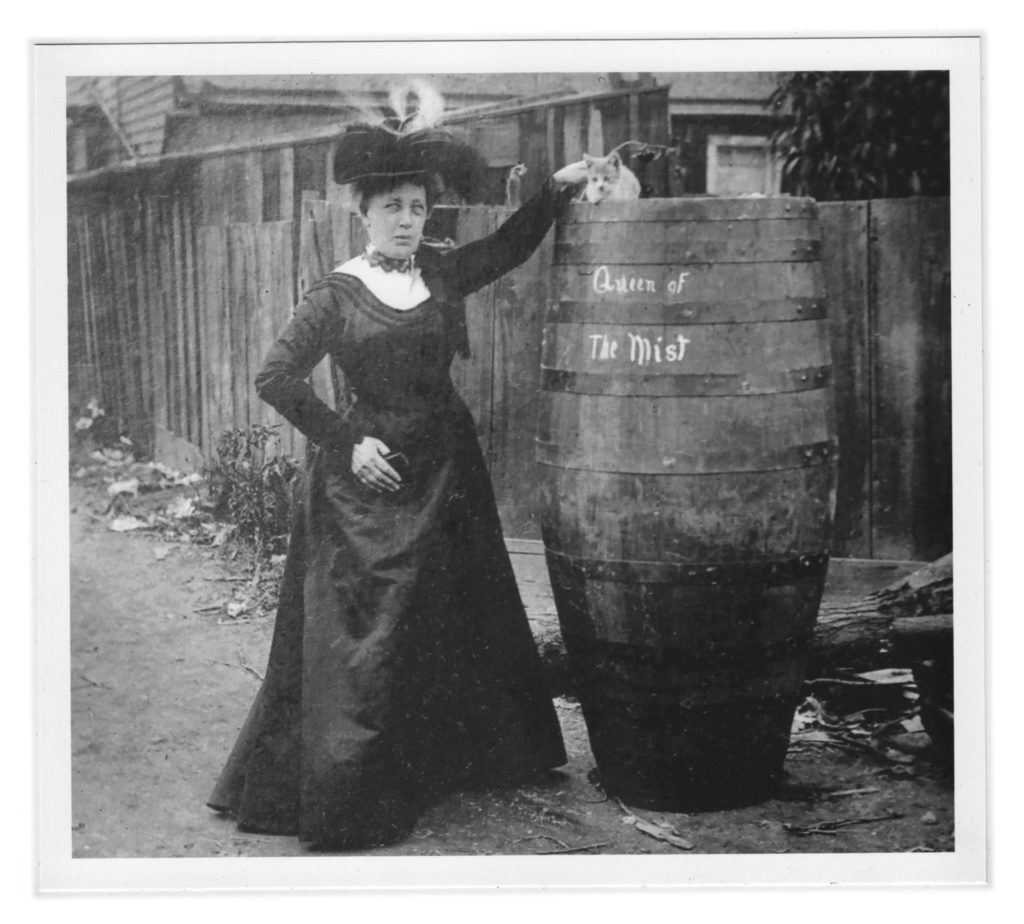
This is the woman, who when her stagecoach was robbed refused to disclose the $800 tied in the seams of her dress. A widow, facing poverty, she went over the falls as a way to make some cash, and succeeded for awhile, before she lost it to unscrupulous managers. It was hard to make and keep a buck as a woman in 1901.
It seems like a good story for a poem; let me know if you write one.

Hard to believe that this ad is from 1965, but of course, the assumptions it makes are part of what the rebellion of the 1960’s was about.
The world I grew up in, the world of the 50s and 60s, was a white man’s world. Every position of power, doctor, lawyer, judge, politician, was held by allegedly straight white men.
There were a few exceptions, of course, but everywhere you looked, there were often mediocre white men in charge, despite the fact that there were smart
women and minorities around who could have done a better job. So it makes perfect sense that women and minorities protested. The feminist movement, the black power movement, the LGBT movement all rose out of that sense of unfair disenfranchisement.
But now it seems to me we have a reverse problem: to satisfy diversity requirements, those hiring might chose a mediocre person of color or with a disability or a non-mainstream gender orientation over a more qualified straight caucasian.
I totally get the importance of role models, of disparate voices, of the way networking and connections influence who you know and suggest for a position. But shouldn’t the best human available for a given job be our goal?
Sports teams seem to have representation based on pure ability. Surely this is a model that would benefit us all in the long run.
Yesterday I posted Jordan Peterson’s rant on how he doesn’t believe the threat of climate change will bring us together to act for the good of the planet.
In response, my son sent this comic, which I also believe:
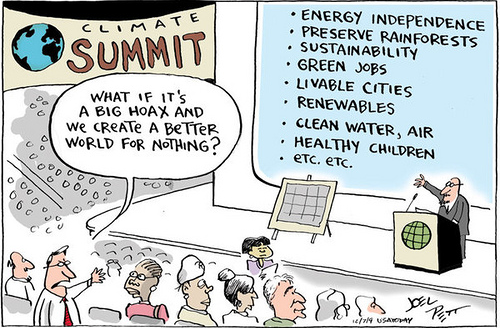
But to be fair, I don’t think Peterson was really saying, “do nothing,” I think he was just pointing out that we are a divisive race. There isn’t much evidence that we can join together to effect global change.